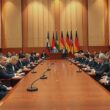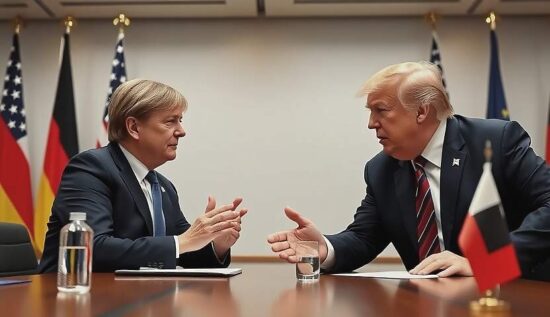This coming Monday, Donald Trump will be inaugurated as the next President of the United States. Trump’s second presidency is expected to have profound implications for Germany. The main source of concern is his announcement to impose a 10, possibly 20 percent, tariff on imports. This could be “painful” for the German economy, according to economist Ulrike Malmendier of the Frankfurter Allgemeine Zeitung.
The German government’s economic advisory council estimates that in this scenario, the country’s gross domestic product (GDP) could decline by about one percent. “This effect will be driven mainly by a decline in investments” Malmendier explained. “If German exports decline significantly, it will weaken the investment demand.” In the event of a 20 percent tariff on both sides, the GDP decline could be even more pronounced, at 0.4 percentage points, she estimates.
The president of the Kiel Institute for the World Economy, Moritz Schularick, has described Trump’s re-election as “the economically most challenging moment in the history of the Federal Republic of Germany.”
The German Economic Institute in Cologne estimates that due to Trump’s policies and the EU’s countermeasures, the German economy could shrink by around 1.5 percent in 2027 and 2028. “The strong and sustained decline in private investments explains more than two-thirds of the negative GDP effect” said the institute’s director, Michael Hüther.
In Berlin, many scenarios are being played out in the ministries, on how Germany and the EU should respond to Trump. Federal Economics Minister Robert Habeck (Green Party) finds a robust approach, with the possibility of taxing tech companies in response to higher tariffs.
In contrast to the government coalition, the CDU has been seeking good contacts with the Trump camp for a longer time. The CDU’s economic spokesperson, Jens Spahn, traveled to the Republican Party’s convention in Milwaukee last summer, setting his hopes on the new US administration’s interest in good relations with Europe.
“Trump is a deal maker” Spahn said, advising Europeans to make their own proposals to him. Spahn has already come up with concrete ideas, such as offering to reduce EU tariffs or reducing trade with China in sensitive areas in exchange for intensifying trade with the US. He also suggested that the EU could reduce its trade surplus by importing more LNG or defense systems from the US.
This approach sounds more conciliatory than that of Habeck. Spahn is convinced that with a Chancellor Merz, there would be a chance for a restart in US-EU relations.





